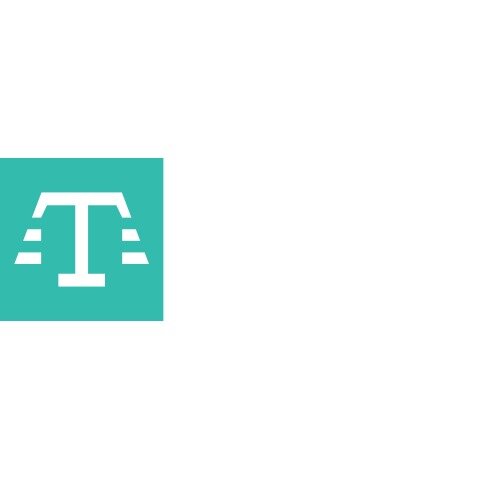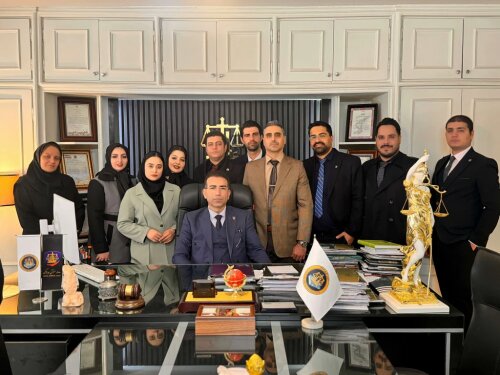Best Wrongful Termination Lawyers in Iran
Share your needs with us, get contacted by law firms.
Free. Takes 2 min.
Or refine your search by selecting a city:
List of the best lawyers in Iran
About Wrongful Termination Law in Iran:
Wrongful termination refers to the illegal dismissal of an employee from their job without a valid reason or in violation of labor laws. In Iran, labor laws protect employees from arbitrary dismissal and provide recourse for individuals who have been wrongfully terminated.
Why You May Need a Lawyer:
There are various situations where individuals may require legal assistance in cases of wrongful termination. Some common scenarios include being fired due to discrimination, retaliation for whistleblowing, or being dismissed without proper notice or justification. A lawyer with expertise in wrongful termination can help protect your rights and ensure you receive fair compensation.
Local Laws Overview:
In Iran, labor laws provide protections for employees against wrongful termination. These laws outline specific procedures and criteria that employers must follow when terminating an employee. For example, employers are required to provide valid reasons for dismissal and adhere to notice periods based on the length of the employee's service. Employees who believe they have been wrongfully terminated can file a complaint with the Ministry of Labor and Social Affairs.
Frequently Asked Questions:
1. What constitutes wrongful termination in Iran?
Wrongful termination in Iran can occur when an employee is dismissed without a valid reason, in violation of labor laws, or as a form of discrimination.
2. Can I sue my employer for wrongful termination in Iran?
Yes, under Iranian labor laws, employees have the right to file a complaint with the Ministry of Labor and Social Affairs for wrongful termination.
3. What damages can I claim in a wrongful termination lawsuit in Iran?
Employees who have been wrongfully terminated can seek compensation for lost wages, reinstatement to their position, or other damages resulting from the termination.
4. How long do I have to file a wrongful termination claim in Iran?
The time limit for filing a wrongful termination claim in Iran varies depending on the specific circumstances of the case. It is advisable to consult with a lawyer to determine the appropriate timeline for filing your claim.
5. Can I be terminated for refusing to engage in illegal activities?
No, termination for refusing to engage in illegal activities is considered wrongful termination under Iranian labor laws.
6. Is there a process for resolving wrongful termination disputes in Iran?
Yes, employees can file a complaint with the Ministry of Labor and Social Affairs, which will investigate the case and determine the appropriate remedy for wrongful termination.
7. What evidence do I need to prove wrongful termination in Iran?
Evidence such as employment contracts, performance reviews, witness statements, and correspondence with the employer can be used to support a claim of wrongful termination in Iran.
8. Can a lawyer help me negotiate a settlement for wrongful termination in Iran?
Yes, a lawyer with experience in wrongful termination cases can help negotiate a settlement with the employer to resolve the dispute outside of court.
9. Are there legal aid services available for wrongful termination cases in Iran?
There are legal aid services available in Iran that provide free or low-cost legal assistance to individuals who have been wrongfully terminated.
10. How can I appeal a decision in a wrongful termination case in Iran?
If you disagree with the outcome of a wrongful termination case, you can appeal the decision through the appropriate legal channels in Iran, such as the labor court or higher judicial authorities.
Additional Resources:
For more information on wrongful termination and labor laws in Iran, you can contact the Ministry of Labor and Social Affairs or consult with legal aid organizations that specialize in employment law.
Next Steps:
If you believe you have been wrongfully terminated and need legal assistance, it is advisable to consult with a lawyer who has experience in handling wrongful termination cases in Iran. The lawyer can assess your situation, guide you on the appropriate course of action, and represent your interests in resolving the dispute.
Lawzana helps you find the best lawyers and law firms in Iran through a curated and pre-screened list of qualified legal professionals. Our platform offers rankings and detailed profiles of attorneys and law firms, allowing you to compare based on practice areas, including Wrongful Termination, experience, and client feedback.
Each profile includes a description of the firm's areas of practice, client reviews, team members and partners, year of establishment, spoken languages, office locations, contact information, social media presence, and any published articles or resources. Most firms on our platform speak English and are experienced in both local and international legal matters.
Get a quote from top-rated law firms in Iran — quickly, securely, and without unnecessary hassle.
Disclaimer:
The information provided on this page is for general informational purposes only and does not constitute legal advice. While we strive to ensure the accuracy and relevance of the content, legal information may change over time, and interpretations of the law can vary. You should always consult with a qualified legal professional for advice specific to your situation.
We disclaim all liability for actions taken or not taken based on the content of this page. If you believe any information is incorrect or outdated, please contact us, and we will review and update it where appropriate.
Browse wrongful termination law firms by city in Iran
Refine your search by selecting a city.
















